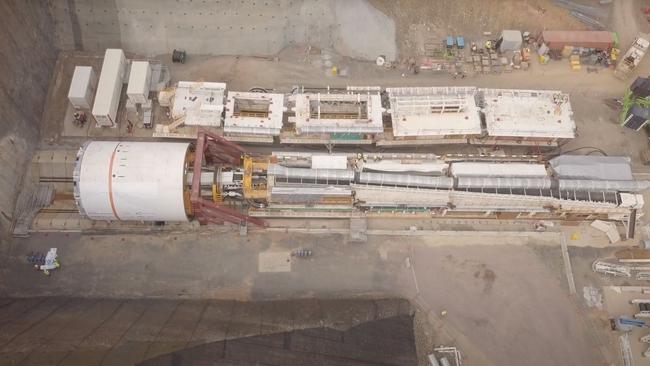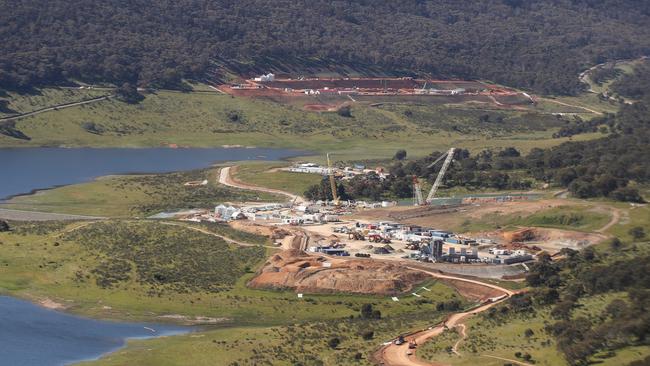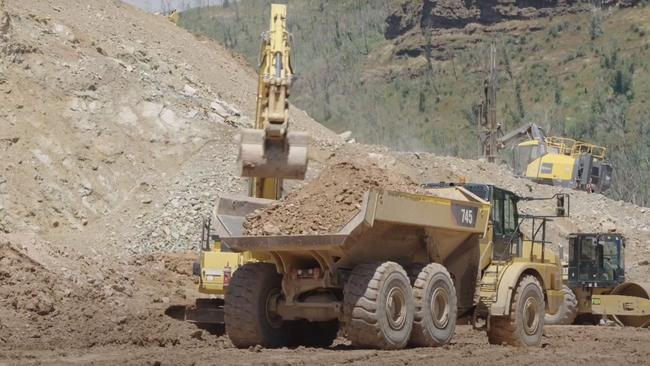South Africa’s Murray & Roberts owes $350m but administrators aren’t confident of getting it back
Deloitte administrator Jason Tracey says Murray & Roberts owes Clough $350m.

Clough administrators concede it may be difficult to recover the $350m owed to the contractor by South African parent Murray & Roberts.
Speaking to The Australian after the first meeting of Clough creditors on Thursday, Deloitte administrator Jason Tracey confirmed the $350m debt – which dates back to Murray & Roberts 2013 takeover of the Australian contractor – was owed by an Australian holding company that was also under Deloitte’s control.
Mr Tracey said only further investigation would reveal why the loan was owed by an Australian subsidiary rather than its South African parent company, and whether there would be any way to make a claim against Murray & Roberts.
“We can’t really speculate on what those claims might be until we’ve completed a much more thorough investigation,” he said.
But Mr Tracey said the administration process was on track to try to preserve the bulk of Clough’s workforce through a part sale of its projects and assets to Snowy 2.0 partner Webuild, or other contractors.
Deloitte confirmed on Wednesday night it was again in exclusive negotiations with Webuild over the potential sale of Clough, and that the Italian contractor had already agreed to take on Clough’s “brands, business references, Australian organisation and certain projects”.

Agreement has already been reached for Webuild to formally take on Clough’s role in the $5.9bn Snowy Hydro 2.0 contract, and its role in a joint venture with Webuild on a large section of the federal government’s inland rail project.
In both cases Webuild would already have been contractually obliged to take on some or all of Clough’s responsibilities in the joint venture partnerships.
The status of Clough’s other major contracts remains in limbo, including its role in the $2.3bn Project EnergyConnect transmission line between South Australia and NSW, and Mitsui and Beach Energy’s $768m Waitsia gas project in Western Australia.
Mr Tracey said Clough employees and subcontractors working on those projects were still being paid, after Deloitte cut a series of deals with the project owners to ensure work continued.
“Those arrangements require the principals and clients to put money into our bank account, which is then held to pay employees and indirect overhead costs which relate to both employees, as well as fixed overheads,” he said.
“In effect we’re being funded week to week by the clients, and that means that the subcontractors and ordinary creditors of the company are getting paid.”
Mr Tracey conceded that some subcontractors were still to receive payment for earlier work, but said Deloitte was processing payments as quickly as it was able to.
A key part of the administrator’s negotiations with Webuild, and other potential buyers of projects, was the preservation of staff entitlements, he said.

Even those projects that Webuild elected not to buy were likely to find new owners, given the strong incentive of clients such Mitsui and Beach Energy to keep their projects moving forward.
“We’ll work towards a project handover to the principal or the client, where they pick up those entitlements and move the project forward themselves directly,” Mr Tracey said.
“Or alternatively, they substitute in another contractor who will probably come in on a cost-plus basis to continue the work.
“The clients are as incentivised as us to try and make it work because these projects are state-significant in many cases, they’re large, and the cost of standing down people and those projects grinding to a halt are significant in terms of extension of time delays.”
The Australian understands Mitsui and Beach have been scouting for an alternative contractor to Clough over the past few weeks, to take over in the event a buyer is not found for the company.
Mr Tracey confirmed at Thursday’s meeting the administrators have also put Clough’s profitable mining contractor, RUC Cementation Mining, on the market in attempt to realise funds for the broader group.
But the Deloitte administrator said the administration was likely to continue for some time even if Webuild bought the bulk of Clough’s work, given the Italian contractor would not take on the whole of the company.
Documents presented to creditors at the meeting show the liquidators of failed contractor Forge have lodged a creditors’ claim over Forge’s 2014 collapse less than a year after Clough offloaded its 36 per cent stake in it as its shares were trading near record highs.
Forge’s liquidators lodged a $187m claim against Clough in 2019 alleging the company and former executives Neil Siford and Kevin Gallagher – now the boss of Santos – were aware of significant issues at major Forge projects ahead of the share sale.
The proceeds of that sale gave Clough the cash war chest to lend Murray & Roberts $200m to complete its buyout of Clough.

To join the conversation, please log in. Don't have an account? Register
Join the conversation, you are commenting as Logout